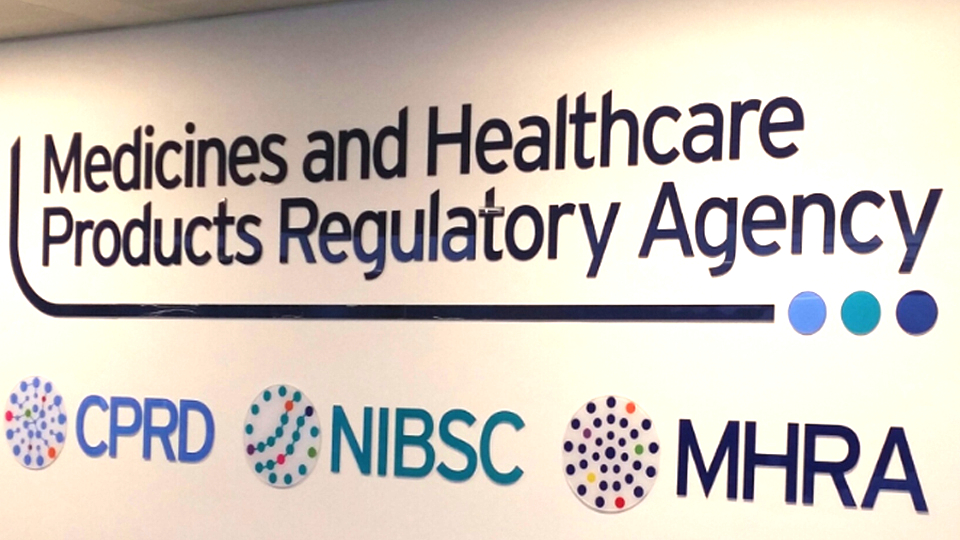UK hemp stakeholders fear CBD could be relegated to medical-only status after the release of a controversial report from a government regulator claimed 10 people have died after ingesting the compound.
The Committee on Toxicity (CoT), an independent scientific body that consults the Food Standards Agency (FSA), highlighted the deaths and listed a total of 860 adverse reactions to CBD which have been reported in the UK as of Feb. 28, 2023.
The UK’s Medicines and Healthcare Products Regulatory Agency (MHRA) records the CoT data under a “Yellow Card” alert system, a compilation of publicly available reports received from healthcare professionals, consumers and pharmaceutical companies.
Undue influence?
Industry representatives, who in the past have suggested medical cannabis interests have undue influence on the CBD sector, were quick to dispute the CoT data.
“This data is not supportive of either the CoT or FSA position and in fact undermines them,” Steve Oliver of The Canna Consultants told BusinessCann. “Referring to data which when examined does not relate to the CBD products they claim to be assessing is disingenuous at best.”
“There have been no deaths and there is no consumer detriment that I am aware of in respect of safety. Mislabeling and poor product quality, yes, but the current regime does nothing to address that,” Oliver said.
UK Cannabis Industry Council Chief Executive Mike Morgan-Giles also criticized the disclosure of the CoT adverse reaction data. “The CIC is committed to following credible scientific and medical analysis. However, these claims about CBD are virtually meaningless based on the clarifications listed on the MHRA webpage, and nor do they withstand any serious analysis.”
Oliver charged that the CoT’s unveiling of the data is designed to undermine the CBD industry and support FSA policy, which requires non-medical CBD products be approved under the agency’s rules for new or “novel” foods, a cumbersome and expensive process which has bogged down amid startup growing pains.
Pointing fingers
Stakeholders have pointed the finger specifically at Ireland-based Jazz Pharmaceuticals, alleging the company is looking to wall off CBD as a prescription-only pharmaceutical. The company’s GW Pharmaceuticals unit makes Epidyolex (Epidiolex in the USA), a high-CBD-containing drug prescribed for seizures associated with two rare forms of epilepsy in children – Lennox Gastaut syndrome (LGS) and Dravet syndrome. The drug, approved by the FDA in June 2018, is the only legal cannabis medicine in the U.S., and was authorized by the MHRA for marketing in the UK in September 2019.
“GW saw the CBD industry start to take off, and they must have thought we need to stop this,” Oliver told BusinessCann in February.
The CoT concluded that CBD poses risks to health, but critics note the underlying data, which was compiled by GW, came from tests based on doses of CBD at 20mg/kg of body weight, well beyond the recommended daily intake of 1mg/kg of body weight. Critics say the CoT reports raise safety concerns but don’t address whether the issues were explainable.
GW has said data gaps regarding CBD products still exist, and whether treated as food or medicine, patients and consumers deserve transparency regarding safety issues. The company said clarity is needed regarding such matters as toxicity, drug-drug interactions, abuse potential, side effects and safe dosage.
Jazz ‘pushing boundaries’
Jazz Pharmaceuticals has taken an aggressive approach to lobbying in markets where it operates around the world, getting into the discussion as rules are being shaped. The company is registered to lobby on CBD policy with the U.S. Congress, and recently joined a CBD working group in France launched by the General Directorate of Health. The company has also lobbied aggressively in Brazil and other countries.
Jazz, which has a reputation for delaying tactics aimed at limiting competition and maximizing short-term gains, has been criticized by the Federal Trade Commission and lost cases in court over its strategy in the U.S. A federal court in Delaware ruled in November that the company had attempted to block the introduction of a competing narcolepsy drug from a rival, Avadel Pharmaceuticals. Jazz Pharmaceuticals appealed the case, and a federal circuit court last week upheld the lower court’s ruling.
“Jazz Pharmaceuticals has figured out a way to push the boundaries even further — a feat that demonstrates the lengths to which drug makers go to eke out extra profits and that two federal courts have now ruled was improper,” the New York Times wrote in the wake of the court rulings. For every month that Jazz could delay the arrival of competition, the company and its shareholders stood to benefit financially, the Times noted.

